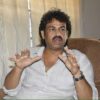Tamil Nadu: NEET exceptionalism
Shivani Chaturvedi (Chennai)
The Dravida Munnetra Kazhagam (DMK)-led Tamil Nadu government is determined to scrap the National Eligibility cum Entrance Test (NEET) — the national exam to determine admission into all 704 medical colleges countrywide, including public and private medical colleges in Tamil Nadu.
For the past seven years since NEET was introduced, a political consensus opposing this national test has emerged statewide. All major political parties — especially the DMK and opposition All India Anna Dravida Munnetra Kazhagam (AIADMK) — have fiercely opposed NEET on the ground that students from 37,500 Tamil Nadu Board of Secondary Education (TNBSE)-affiliated schools — especially rural schools — suffer severe disadvantage in writing NEET.
On November 26, addressing the fourth state conference of the Doctors’ Association for Equality (DASE), chief minister M.K. Stalin said: “The medical entrance examination was imposed on Tamil Nadu and could destroy its medical infrastructure.” He added that Tamil Nadu is determined to scrap this test, recalling the rising number of NEET-linked student suicides across the state in recent years.
On more than one occasion the state’s legislative assembly has passed resolutions demanding NEET exemption for Tamil Nadu, arguing that a single qualifying test is contrary to social justice. On September 13, 2021, the assembly passed the Tamil Nadu Under Graduate Medical College Degree Courses Bill, 2021, which exempts school-leavers from the state from writing NEET. However, as the Bill challenges a Central law it requires the assent of President Murmu, who is obliged to act on the advice of the Central government.
This political consensus opposing NEET has the backing of academics in Tamil Nadu. “Before NEET was introduced, some 200-300 government school students were admitted into medical colleges in Tamil Nadu. However, since NEET was introduced in 2016, less than 1 percent of government school-leavers have been admitted into the state’s medical colleges. In private colleges as well, of the 6,132 seats, only 65 were awarded to government school students. However, in 2023 after the legislative assembly enacted a Bill mandating a 7.5 percent “horizontal reservation” in undergraduate medical admissions for candidates who had studied in government schools, 500-plus students from government schools were admitted into the state’s medical colleges. This 7.5 percent quota has proved a huge boon for government school students,” says Manickavel Arumugam, an alum of the Guindy Engineering College, National University of Singapore and Annamalai University and currently a Chennai-based career counsellor.
Similarly Tamil Nadu’s former director of medical education Dr. R. Narayanababu concedes that the “standardised nature of NEET puts students from rural and economically weaker backgrounds at a disadvantage.”
Prior to introduction of NEET in Tamil Nadu in 2016, admissions in medical colleges were on the basis of marks obtained in state board exams. This made it easier for students in schools affiliated with TNSBE to qualify for entry into medical colleges.
According to the Justice A.M. Rangarajan Committee appointed in 2021, before NEET, 98.23 percent of students admitted into medical colleges were from state board schools, and less than 1 percent were from CBSE-affiliated schools. Since introduction of NEET, the number of students from CBSE-affiliated schools has risen sharply, says the Committee’s report.
Yet while the concern of Tamil Nadu’s politicians and academics for the state’s students is commendable, it’s quite obvious that the declining number of state board students qualifying in NEET is rooted in inferior teaching-learning standards in TNSBE-affiliated schools. This lacuna needs to be addressed, rather than secession from NEET. Because in the long run, if this secession is successful, Tamil Nadu’s medical practitioners will be perceived as inferior to their counterparts in other states.
















Add comment